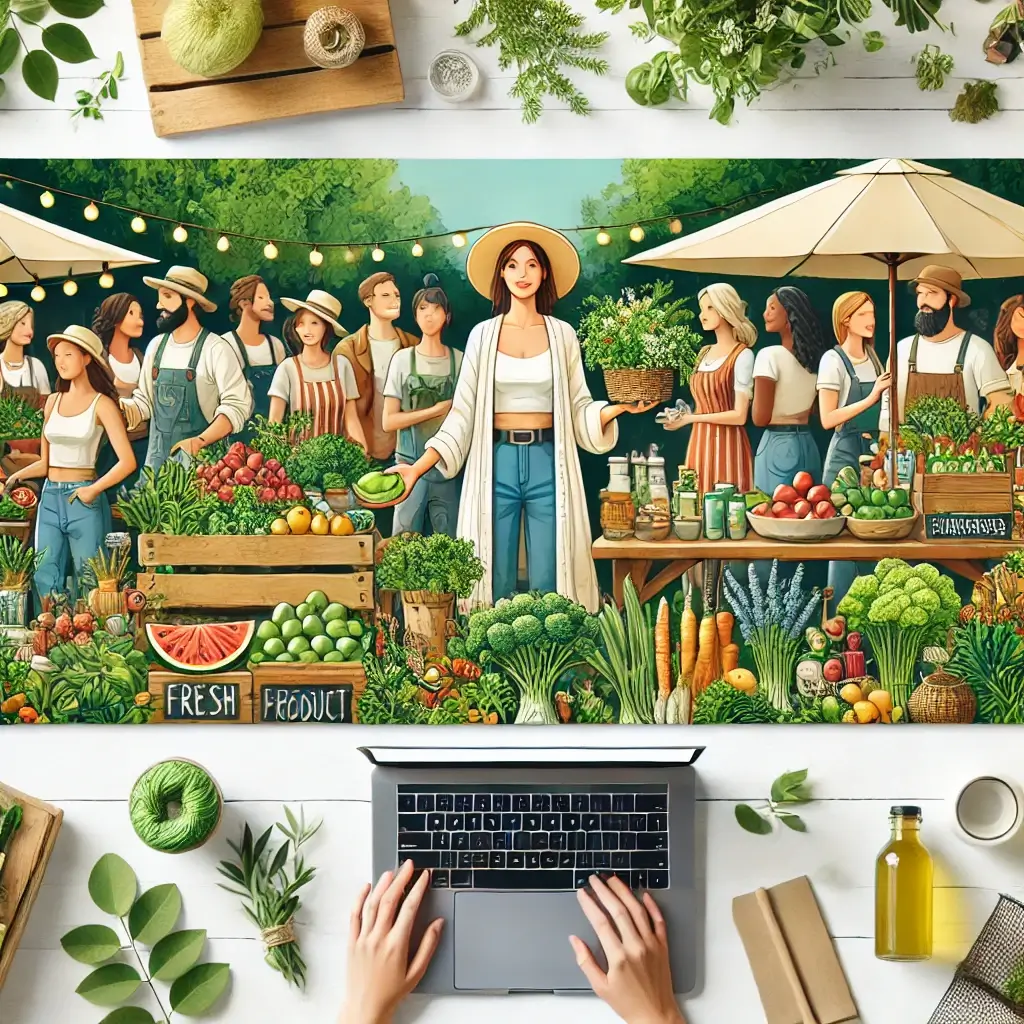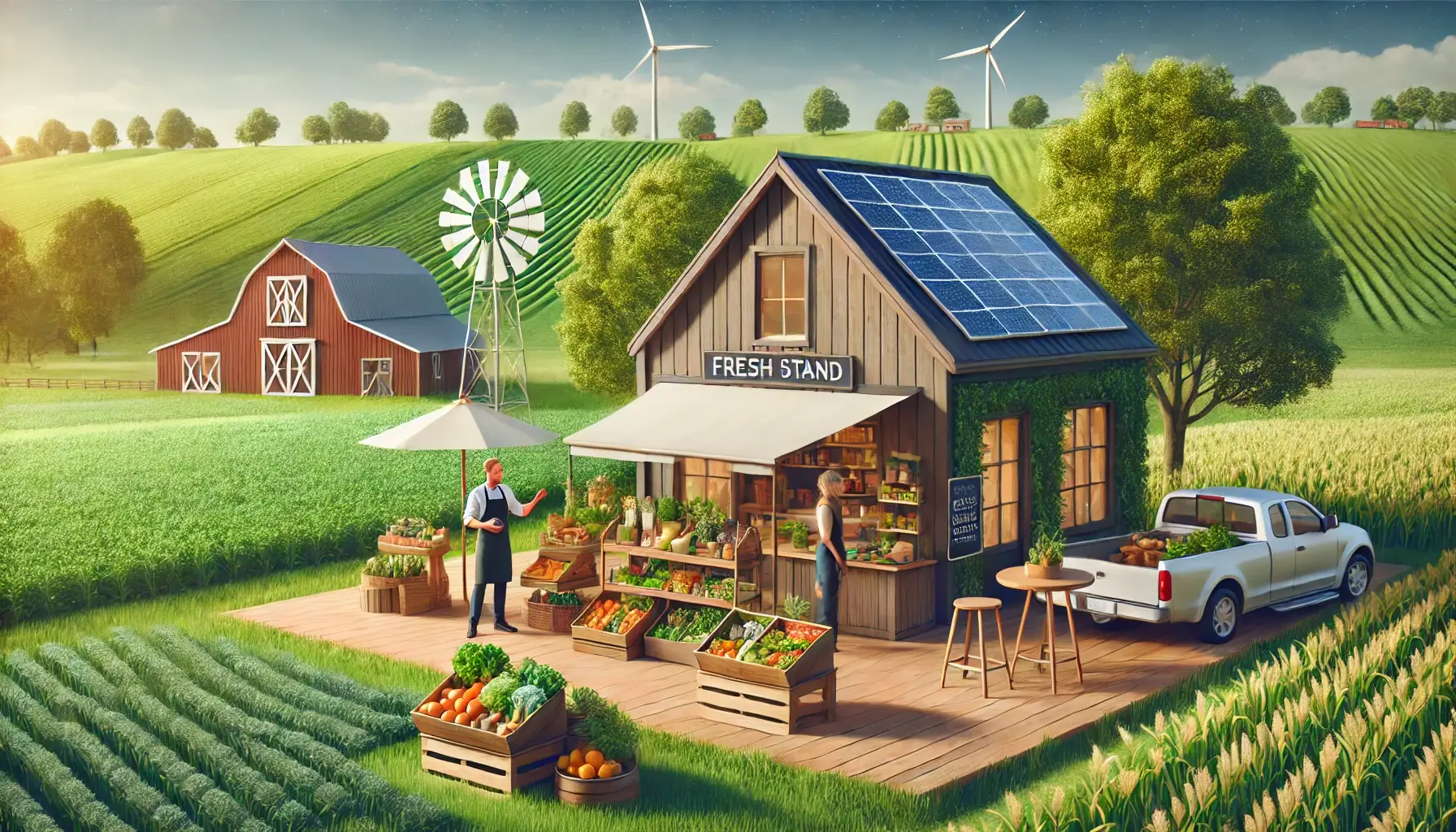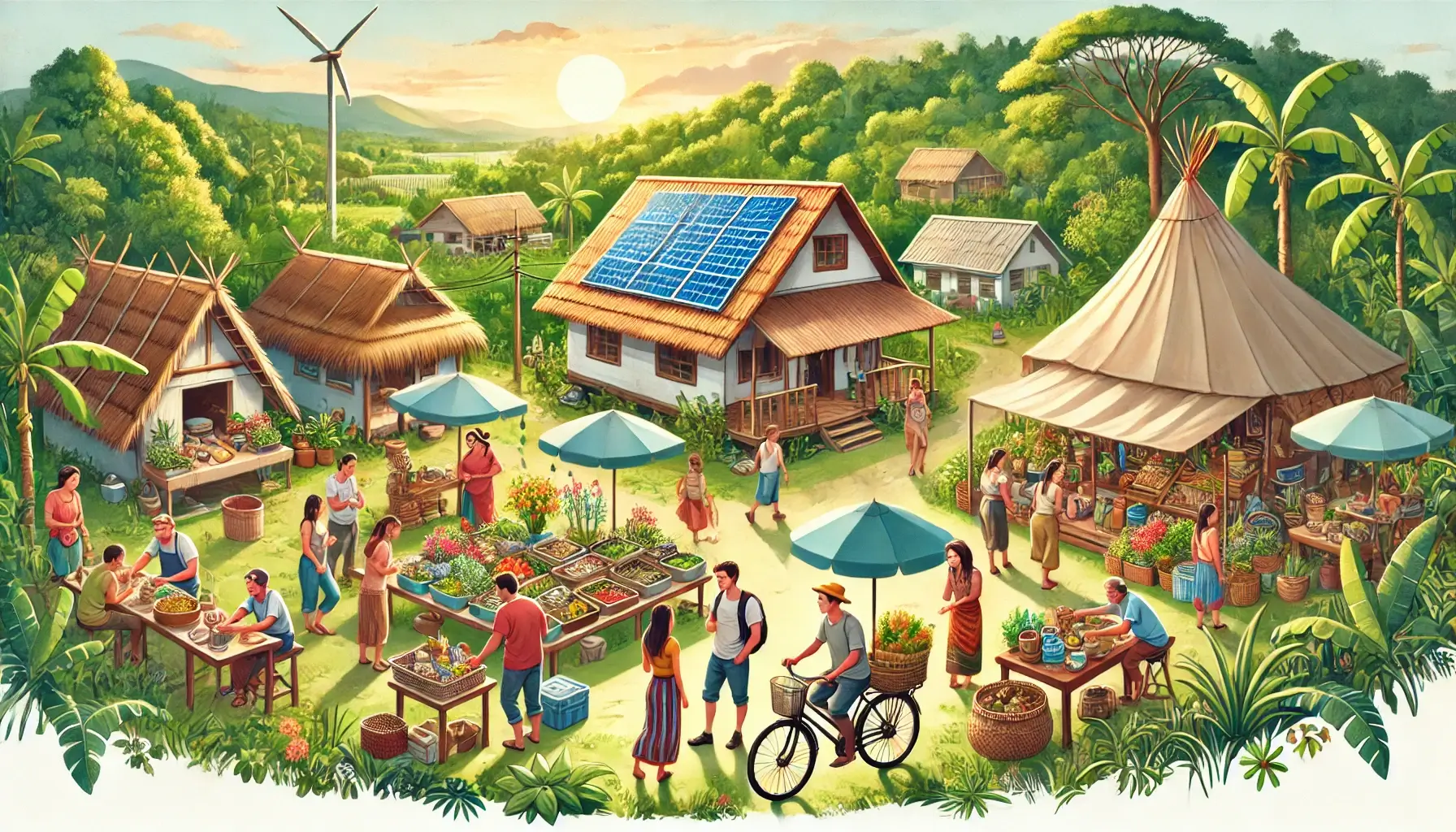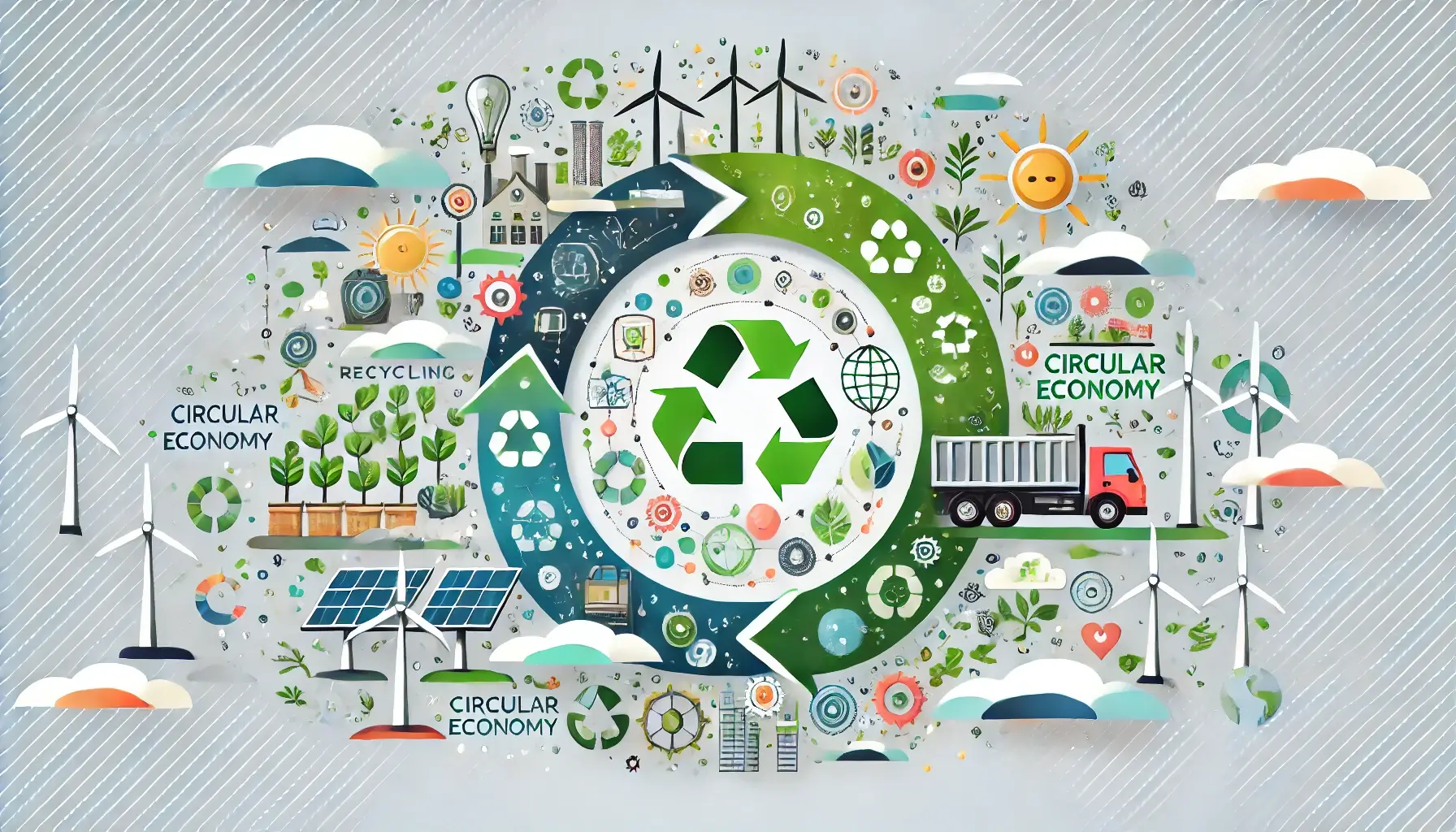In today’s connected world, it’s easy to take for granted the journey our everyday purchases make. That coffee you’re sipping by the kitchen table watching your 8 year old playing with his cereal 30 minutes before school starts, or the shiny gadget in your hand overloading you with morning information you are likely not very interested in. Well, they traveled thousands of kilometers before landing in your life. It’s a logistical marvel that took decades to ‘optimise’, no doubt. But somewhere along the way, we’ve overlooked the significance of choosing goods made closer to home.
While we cannot always opt for local products due to unavailability, there are several cases where we do have the option but we opt not to for various reasons. When you buy local, whether it’s produce from a nearby farm, a handmade craft, or bread baked just around the corner, you’re doing so much more than shopping. You’re investing in your neighbours, supporting your community, and preserving the unique character of your hometown. It’s not a mere an economic transaction; it’s a vote casted towards a more sustainable, resilient, and fair way of living. Every local purchase is a signal of positive change. You’re essentially nurturing small businesses, reducing your environmental impact, and keeping cultural traditions alive. And let’s not forget the joy of knowing exactly where something came from and the story behind it.
This article dives into why buying local matters, and how it strengthens the economy. It builds community, protects the environment, and keeps culture thriving. It’s about more than feeling good about your choices. It’s about turning everyday moments into tiny steps toward a better world. Let’s explore how your small decisions can make a big difference.
Boosting the Local Economy
When you spend your money on locally made goods or services, that simple trade goes beyond the obvious outcome. You are not simply paying for the item, you’re fueling your local economy in ways that truly matter. One of the biggest advantages of buying locally lies in something called the economic multiplier effect. In simple terms, money spent on local products or services tends to stay local – at least for the most part. That revenue generated by the carpenter working out of their garage, from the purchase of your garden furniture will circulate locally throughout the community. The carpenter will use part of their revenue to purchase raw materials from the local saw mill, and food from the farmers market.
Research from the American Independent Business Alliance shows that about 50 to 60% of every euro spent at a local business stays within the community. Compare that figure to just 10 to 15% for euros spent at multinational corporations. The bulk of the money spent on multinational corporations or state wide corporations, flows out of your region, leaving behind only a small fraction to benefit local businesses and workers.
Let’s reiterate on how the whole process works; When you buy from a local shop, whether it’s a small grocer, a farmers’ market, a local accountant, or even that extra special jar of honey from your neighbour beekeeper, a large chunk of that money stays close to home. Local businesses use that revenue to hire and pay local employees, source materials from other local suppliers, and purchase goods or services from the community. Should those employees and suppliers reciprocate, they would be creating a chain reaction of economic activity that strengthens the entire neighborhood.
Let’s take another everyday scenario: consider purchasing vegetables from a nearby farmers’ market instead of a supermarket chain. The farmer uses your payment to cover operational costs, pay local labour, irrigation perhaps, and buy seeds or equipment from local suppliers. These actions, in turn, support other small businesses and create job opportunities for local residents. It’s a repetitive positive cycle of economic activity that supports half a dozen local families. In contrast, purchases made at national or international corporations often result in a significant portion of the money being funnelled out of the local area. This is something called economic leakage. This occurs when profits are sent to corporations or when materials are sourced from distant suppliers, limiting the positive impact within your community.
However, supporting local isn’t just about the economical aspect, it’s about people. Small and medium-sized enterprises (SMEs) are the backbone of regional economies. They are more likely to reinvest in the community. Sponsor a playground perhaps, create long-term job stability, foster innovation tailored to local needs and take pride in acting as a steward of the land they manage and own. Beyond economic benefits, this practice also strengthens the community, as businesses continue to thrive, contribute and build versatile neighbourhoods. Choosing to spend locally is a simple yet profound way to enhance the economic resilience of your community. With each local purchase we make, we’re not just supporting a business, we’re investing in a stronger, more sustainable future for our communities.
Strengthening our Community
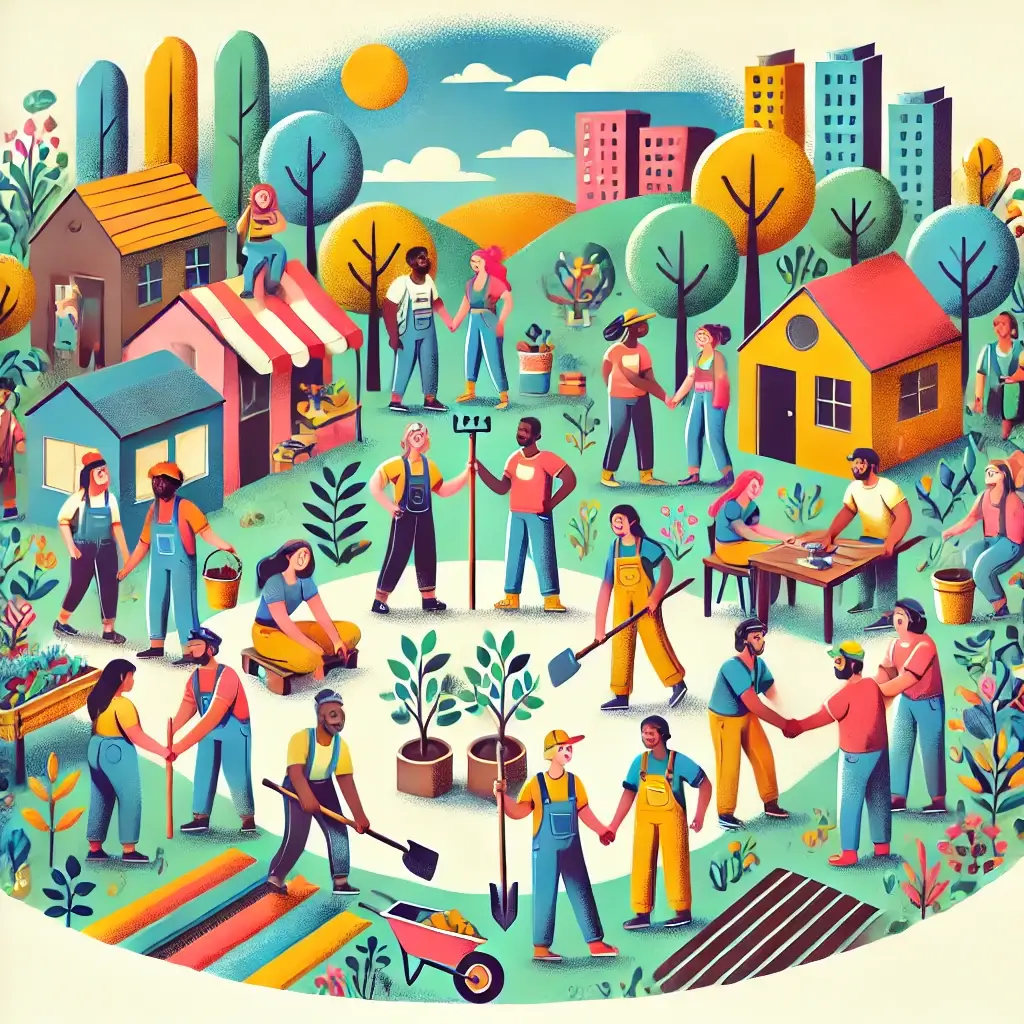
Relationships
When you buy local, you’re doing so much more than just keeping a business afloat, you’re helping build something deeper. It is hard enough to hold a meaningful conversation with an acquaintance when our neck is constantly pointing downwards looking at that shiny gadget that keeps a constant flow of information flowing.
Stopping by your neighbourhood shop or farmers’ market isn’t just about picking up groceries or a set of wooden kitchen ladles for your newly refurbished kitchen. It’s a chance to connect, human to human. Let’s face it: when was the last time the manager of a supermarket chain asked how your tomato plants were doing this year?
When you visit a local market, you’re not just buying a freshly made loaf of bread. You’re meeting the baker who woke up at an ungodly hour to prepare the dough and work in the unbearable heat to prepare food for you and your family. You’re shaking hands with the farmer who grew your carrots or chatting with the craftsman who made your garden furniture so you can barbecue to your heart’s content. You get to hear the stories behind your purchases, learn about them and the care that went into the products they provided. And maybe even swap a recipe or two. Plus, chances are, you know the person standing behind the stall—or at least know someone who does! That personal touch is priceless and feels human. Going around from isle to isle handpicking ultra processed foods in a supermarket chain, in isolation, dumping items in the shopping cart, avoiding crowds and having conversations with yourself about the injustice of recent government changes to taxes that affected basic food supplies.
Compassion
And here’s the thing: buying local isn’t just about the warm fuzzies (though there are plenty of those). It’s about pride. Pride in your community, pride in your people, and pride in knowing you’re part of something bigger. When you see that little bakery down the street thriving or hear about the family-run café expanding, it’s a win for everyone. It’s a reminder that your neighbourhood has its own unique character, one worth celebrating and supporting.
You give, others give back
Local businesses also give back in ways that really matter. They sponsor school programs, show up for community events, and chip in for local projects. They’re not just businesses, they’re neighbours. And the best part? It’s a virtuous cycle: the more you invest in them, the more they reinvest in the community. So next time you’re deciding where to spend your money, remember: buying local isn’t just a financial decision. So what if it costs that little bit more. It’s a vote for connection, for resilience, and for that unmistakable feeling of belonging. And hey, it’s not every day you can say your purchase came with a smile, a story, and maybe even a free taste of honey.
Promoting Sustainability
Choosing local products isn’t just a win for your community, it is also a powerful way to support sustainability. Think about it for a second. Local goods don’t have to take a long road trip (although I wouldn’t mind one right now), plane ride, or a cruise to get to you. With shorter supply chains, produce racks up far fewer ‘miles’, which means fewer emissions and a smaller carbon footprint. It’s like giving the planet a much needed breather while still getting what you need.
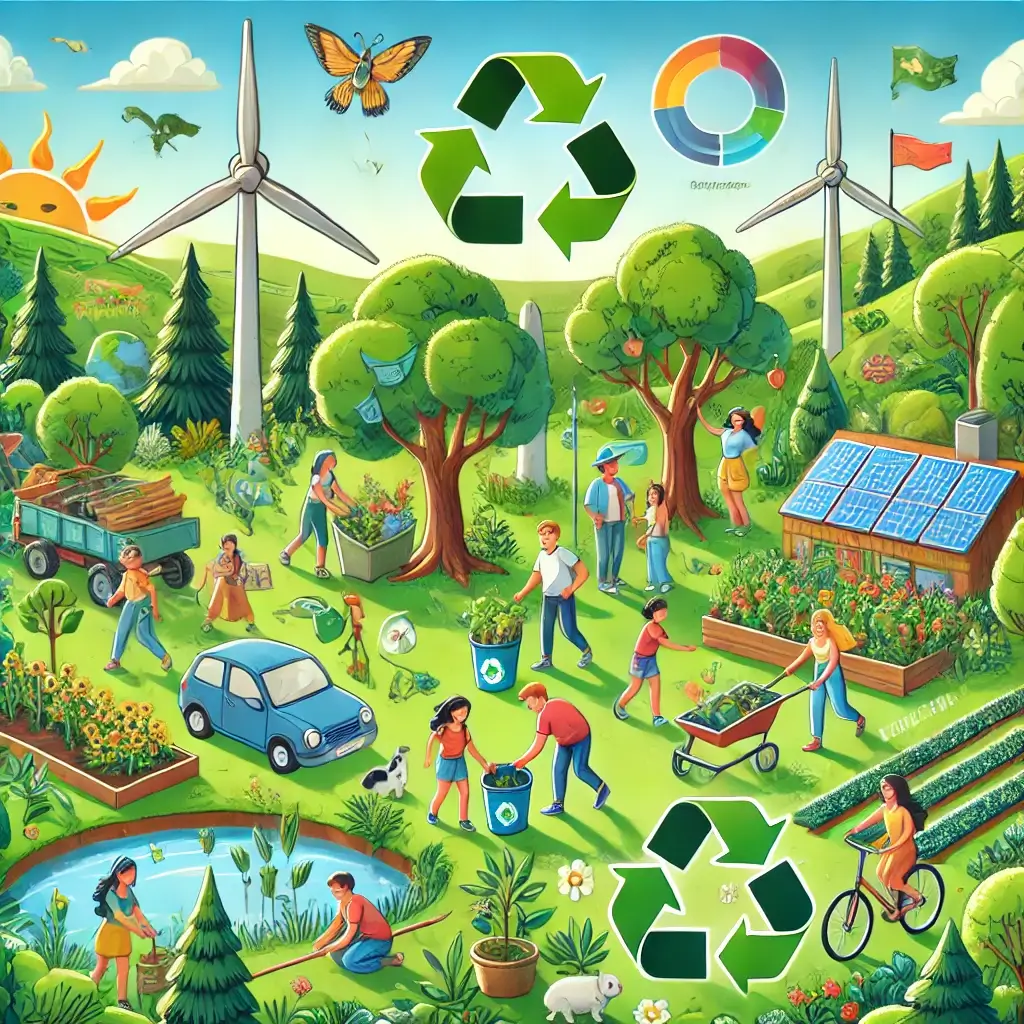
But the benefits don’t stop there. Many local producers are the unnoticed heroes of eco-friendly and regenerative practices, at least in theory. These are the folks who care deeply about their soil, their water, and their ecosystems because their livelihoods (and their kids’ futures) depend on it. They’re the ones using organic farming methods, managing their land responsibly, and skipping the synthetic shortcuts. Compare that to large-scale industrial producers who prioritise profits over everything else, even if it means leaving a trail of depleted resources and waste in their wake. Choosing local is about more than what’s on your plate or in your shopping bag, it’s a mindset shift. It is basically saying, “I care about the long-term health of my community and the planet more than I care about saving a few pennies or picking the easiest route.”
And here’s the beauty of it: small, consistent choices add up. That honey from a local beekeeper, those tomatoes from a nearby farm, or that handmade soap from down the street are all part of a ripple effect. Together, they help reduce waste, protect ecosystems, and build a future that’s a little kinder to our planet.
So, the next time you’re shopping, think beyond convenience and price. Cast that sustainability vote. Choose products that reflect care for the environment and the community. It’s not just about what you’re buying, it’s about the values you’re living. Be mindful, and who knows? That jar of local honey might just taste a little sweeter knowing you’re helping create a healthier world, one small choice at a time.
Celebrating Cultural Identity
Local products are so much more than things you buy. They are little pieces of a region’s soul. They’re made with the traditions, skills, and heritage that make that place unique. Whether it’s creamy goat cheese, sun-dried tomatoes, handwoven baskets. Or that golden jar of local honey. Each product carries a story. And when you choose local, you’re not just shopping, you’re helping keep those stories alive.
Think about it; any local products are rooted in practices passed down through generations. They are using native resources that are part of the community’s history. Recipes that took long years to perfection. That handwoven basket you just purchased? It is not just functional; it’s a reflection of artistry and care. Skills passed down generations. That jar of homemade jam? It’s a love letter to the land where the fruit or flowers were grown. Every item has its own tale, one you get to be a part of when you choose to support local businesses.
And here’s the beautiful part. By buying local, you’re supporting the preservation of cultural traditions that could otherwise fade away to a world dominated by mass produced superficial products with no background, history, or thought (beyond profits). Local artisans, farmers, and makers keep techniques, recipes, and crafts alive, things that big corporations just can’t replicate. They create products that stand out, full of creativity, individuality, and sometimes even a sprinkle of nostalgia. Remember those specific biscuits you could only find in your local confectionary? Supporting local isn’t just about celebrating the past. It’s about blending tradition with innovation. When you buy local goods, you’re contributing to a cycle where communities thrive, artisans adapt to modern tastes, and cultural identity stays relevant. It’s like giving the next generation a gift. The chance to inherit not just the skills and stories, but the pride of the generation that preceded them.
So next time you reach for that handmade candle or local cheese, remember, it’s not just a product. It’s a piece of culture, a slice of history, and a way to invest in the creativity and resilience of the community around you. And let’s be honest, doesn’t everything taste or feel just a little better when it comes with a great story?
Better Quality
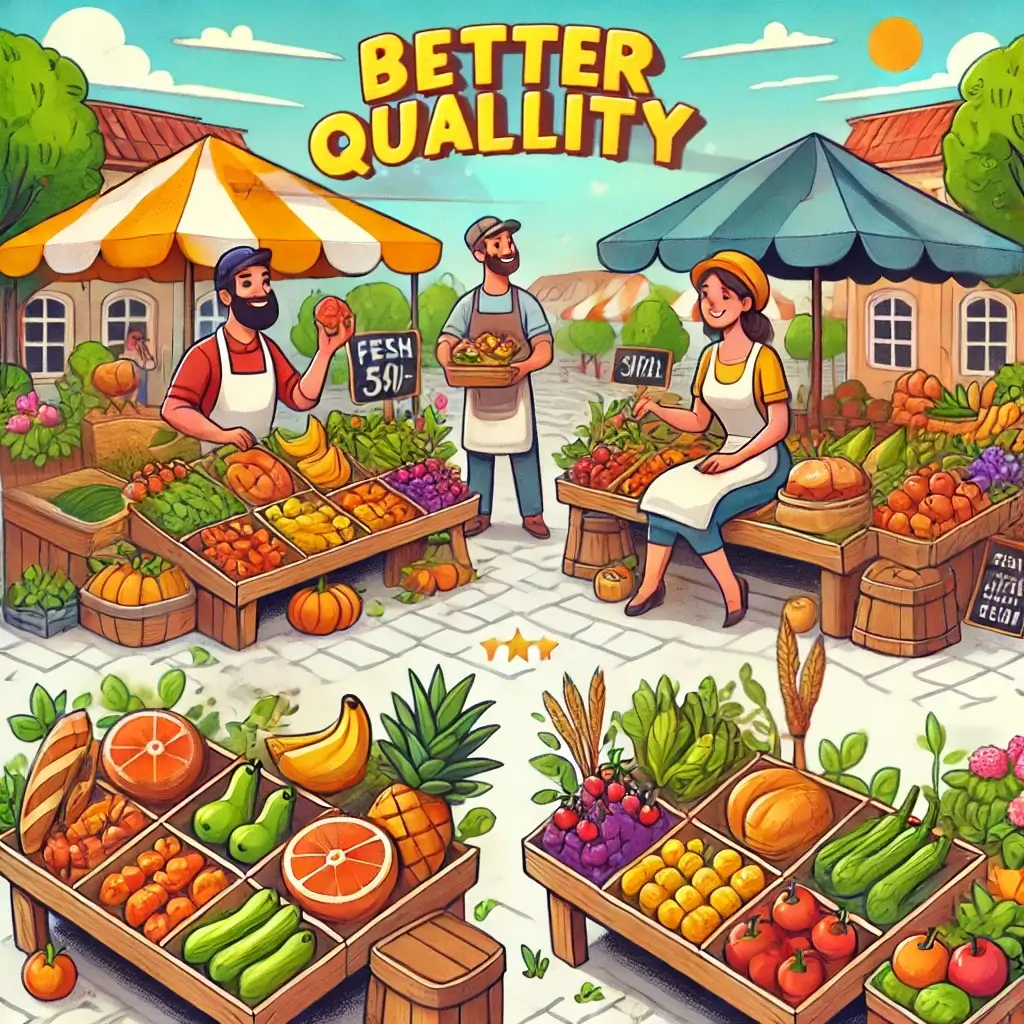
Yumminess
This is one of my favourites and an obvious one of course! One of the best perks of choosing local products is?
The unbeatable quality and freshness, especially when it comes to food. Let’s be real. Whether you’re a city dweller or live in a suburban or rural community. I’m sure at one point in your life you’ve ever bitten into a tomato from a local market.
You know it’s a completely different experience from eating one that’s traveled halfway across the world or mass produced in massive greenhouses. That tomato, picked ripe from a nearby farm, bursts with flavor and nutrients, while its mass produced long-haul cousin? Erm, not that much. Let’s be kind and say it often tastes more like cardboard than sunshine. Pun intended!
It’s secret? Well, the secret is in the journey (or lack thereof either way). Local food doesn’t have to endure days (or weeks) in transit, so it reaches you at its peak. Shorter distances mean fresher fruits, crisper vegetables, and dairy and meat that taste like they should. Without the need for artificial ripening or unnecessary preservatives. It’s nature’s version of fast food, only way healthier and infinitely more satisfying. It is not just the long-haul journey that impacts our food. It is the care, the principles behind their growth, the genuine land stewardship. The natural practices that regenerate soil. It is that soil that grows the very food you eat!
Beyond profits
But it’s not just food. The same goes for other locally made goods, handcrafted furniture, artisanal soaps, small-batch skincare, or even locally brewed alcohol. Local producers focus on quality, not quantity, pouring their heart and soul into every recipe. Sure, the price tag might be a little higher, but you’re paying for something made with care and built to last. Let’s face it – what is the main reason we are in today’s situation? It is because profits are constantly being prioritised over every other aspect of a transaction.
Transparency
What’s more, local producers often take pride in their transparency. They’re your neighbours, after all, and they know trust is everything. You can ask how your food was grown, where those materials came from, or why their honey tastes so much better. That kind of openness and accountability is rare in the world of industrialised economy.
So, whether you’re buying fresh eggs produced by a chicken named Lita, a handmade cutting board, or a bottle of essential oils, choosing local isn’t just a feel-good move, it’s a smart one. You’re getting products that align with your expectations for quality and freshness, all while supporting the people who make your community a community. And honestly, doesn’t it feel great to know exactly where your stuff comes from? It’s like having a direct line to the magic behind the product.
Dependence on Global Supply Chains
Impacts of COVID-19
If the COVID-19 pandemic taught us anything, it’s how fragile our global supply chains really are. Remember those empty shelves and the scramble for essentials (like toilet paper)? Sudden lockdowns, transportation snags, and labour shortages threw a wrench into the system, leaving many of us wondering, “Wait, how are we going to live without toilet paper?”
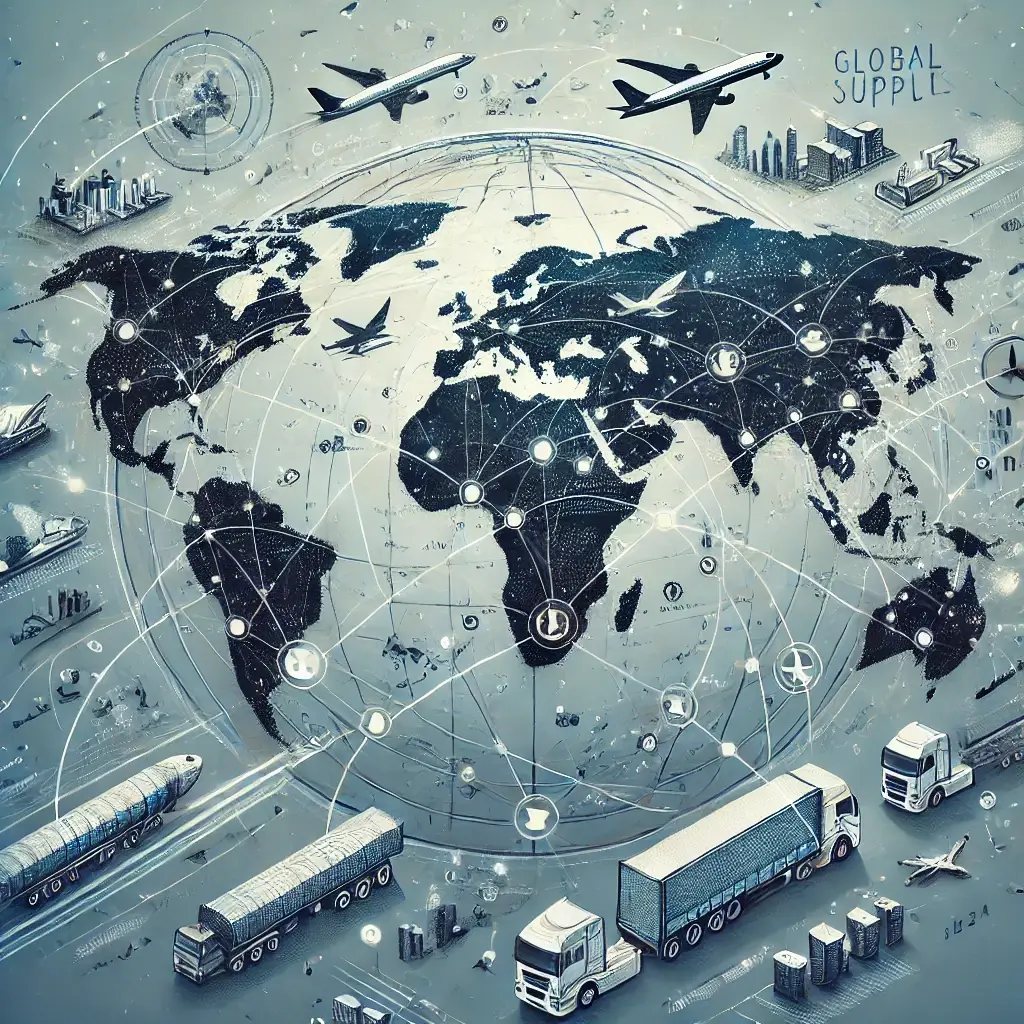
It was a wake-up call, an obvious reminder of how much we rely on goods traveling halfway across the world to meet even our basic needs.
Local businesses save the day
But here’s where local businesses stepped in and showed us what resilience looks like. By turning to nearby farmers, artisans, and producers, many communities managed to fill some of the gaps at least. Local farmers kept fresh food on our tables, small businesses churned out masks and hygiene products, and suddenly, “buying local” wasn’t just a feel-good choice, was it? It became a lifeline.
Local production is a safety net when global supply chains fail. Instead of being at the mercy of international shipping delays or trade disputes (childish bickering and increase in tariffs for instance), communities that rely on local suppliers can keep essential goods flowing. It’s not just about food, either. A resilient local supply chain helps cushion the impact of geopolitical tensions, fluctuating markets, or even climate-related disruptions. Knowing your essentials are coming from just down the road brings a sense of security that no distant supplier will be able to offer.
Relying less on global supply chains isn’t just about being prepared for emergencies, it’s about building stronger, more self-sufficient communities. Communities that otherwise could disappear off Google maps in the long-term. Choosing local products means supporting an ecosystem that is ready to withstand metaphorical storms, adapt to challenges, and still meet your needs. And honestly, isn’t it comforting to know that even in tough times, your community has your back? Because we certainly cannot rely on global supply chains based on today’s principles.
One Right Decision at a Time
Choosing local products is a simple yet impactful decision that goes beyond an immediate purchase. Each choice you make to buy a local product, supports a chain of positive outcomes within your community and strengthens the economy. It fosters connections, promotes sustainability and ensures you and your children consume nutritious products. It maintains cultural identity and builds resilient communities for us and future generations. As we witness a rapidly changing world (seems for the worse, but we hope for the best), the importance of locally produced products becomes more clear. Whether it’s a handmade item, fresh produce from a nearby farm, or accounting advice provided by a neighbour, these local contributions create a ripple effect of positive change that extends to every part of the community.
So, the next time you make a purchase, consider its potential impact before crunching the numbers to save some money. By choosing local, you’re making a statement about the kind of world you want to live in. And most importantly, the kind of world you want your children to live in!

